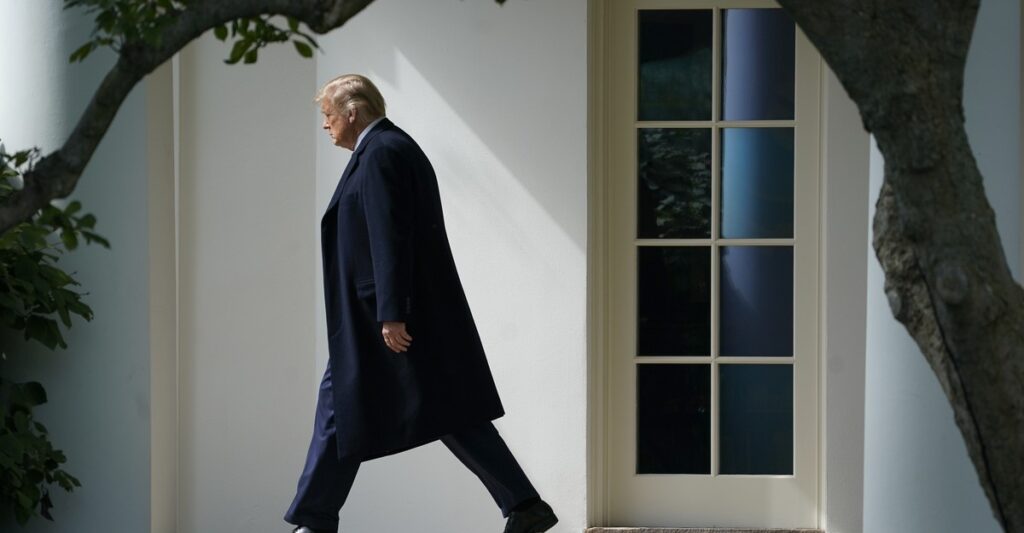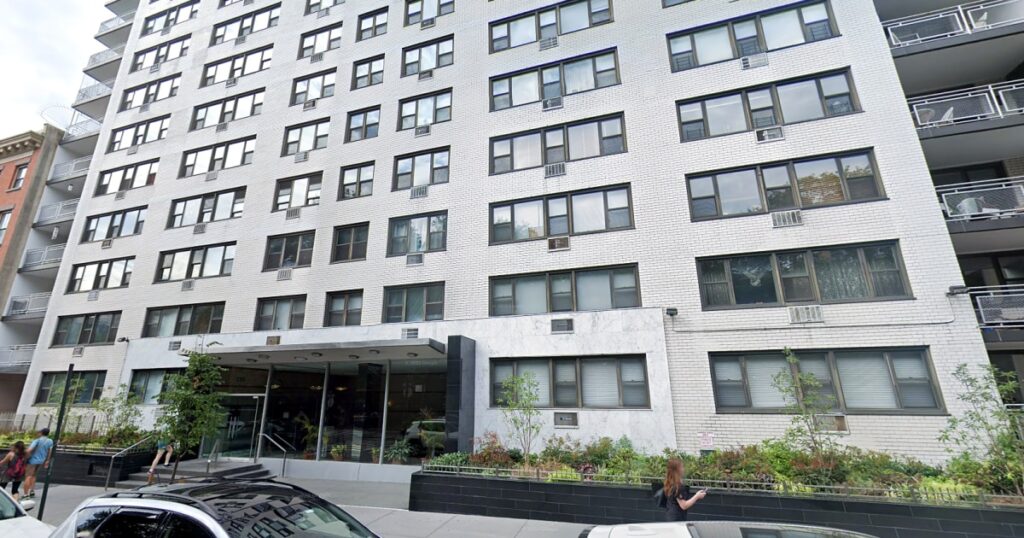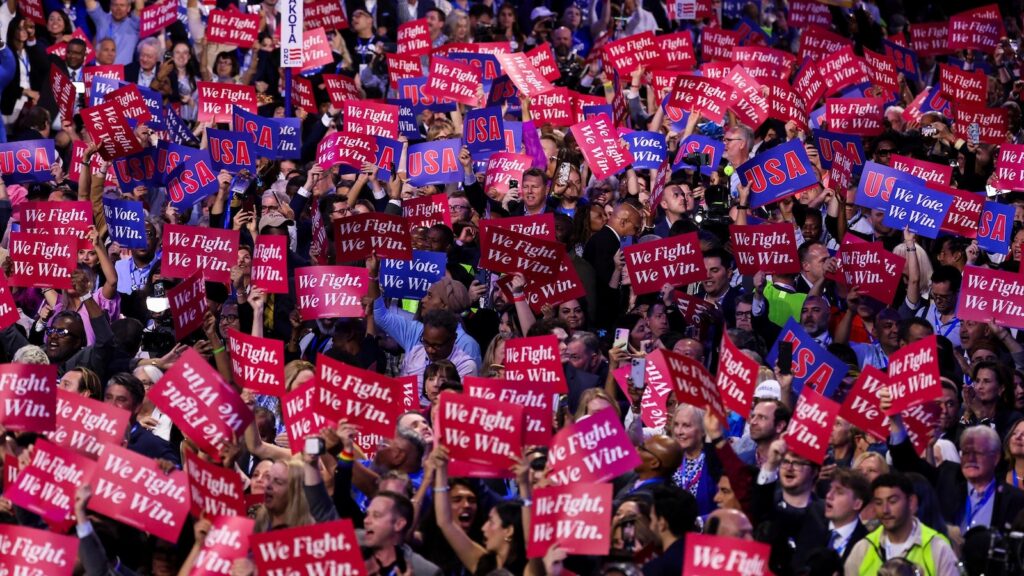This is an edition of The Atlantic Daily, a newsletter that guides you through the biggest stories of the day, helps you discover new ideas, and recommends the best in culture. Sign up for it here.
Grasping the scale of President Donald Trump’s assault on American governance is no small matter. The administration is challenging laws, claiming the right to reinterpret the Constitution, questioning judges’ powers, and arrogating new powers to itself. Seeking to convey the gravity of the situation, many commentators have labeled what’s happening a “constitutional crisis.”
That’s a mistake—not because what’s happening is not serious, but because it is so serious. This week, the Trump administration came the closest it has thus far to outright refusing to follow a judge’s order, after days of comments from Vice President J. D. Vance, Bureaucrat in Chief Elon Musk, and others questioning whether a president must follow court rulings. That’s a threat to the very basic question of whether a president is subject to the law or not—especially when so many things that Trump has done appear plainly illegal.
But the abstraction of constitutional crisis obscures the immediate danger, making what’s happening seem like an issue more for legal experts and policy wonks than for the everyday Americans who stand to lose not only essential government services but also fundamental rights. “A president refusing to abide by the law or the Constitution and ignoring court orders to stop his illegitimate actions would be a constitutional crisis like a bank robbery is a cash flow crisis,” Joseph Ura, a political scientist at Clemson University, told me via email.
A recent New York Times article reported that many legal scholars believe that the country is in a constitutional crisis, but it began by acknowledging, “There is no universally accepted definition of a constitutional crisis.” The law, for all its careful parsing of language, has a weakness for this sort of I-know-it-when-I-see-it formulation, but if even the professors can’t define it, how can the general public? Senator Elizabeth Warren, a former Harvard Law professor, warns that “we’ve got our toes right on the edge of a constitutional crisis,” which also raises interesting questions about the topography of a crisis.
At one time, appeals to the sanctity of the Constitution might have swayed more people, but one reason Trump has been able to dominate U.S. politics for so long is that voters are not feeling protective of their institutions. About six in 10 people in a 2022 New York Times poll said the constitutional order needs major reforms. In 2023, Pew found that just 4 percent of Americans think the political system is working very well. And in 2024, voters selected a guy who’d tried to overturn the previous election. Regardless of what law professors think, the populace has already decided that the Constitution is in crisis.
Perhaps I’m a cockeyed optimist, but I don’t think that means they want an unaccountable leader who is not beholden to laws, courts, or Congress. Already, Trump’s approval rating is down, and his disapproval rating is up. I noted last week that some of his supporters are regretting their choice. Many of the effects of sloppy cost cutting are going to be even more unpopular once voters feel them. But appeals to a system they’ve come to distrust are not the way to rally them.
A “constitutional crisis” certainly sounds bad, even if you can’t say what it is. But whatever fresh shock the term might have provided has been dulled by years of use. Google Trends tells a story of desensitization. Going back to 2004, there are sporadic spikes of interest in the term, such as during the 2008 financial crisis and around government shutdowns during the Barack Obama presidency. Then the line starts bouncing around like a flea when Trump takes office the first time. It calms again during the Biden administration but takes off on a dizzy, vertical ascent when Trump returns to office in 2025.
Commentators who labeled previous moments “constitutional crises” may not have been crying wolf, exactly, though in retrospect perhaps the term could have been reserved for the worst moments—January 6, for example—for maximum clarity. Regardless, you can’t hear about a problem on and off for years without it becoming less urgent. Trump isn’t just destroying norms; he’s established a state of crisis as the new norm.
And insofar as people do think of this as a “crisis,” that might only further empower Trump—who’s responsible for it in the first place. That’s because, in times of crisis, Americans usually look to the president to act quickly and decisively. That can be good in a bona fide external crisis, like an attack by a foreign country or a pandemic, but that’s not what’s happening now. “To the extent we’re in a crisis, it’s a crisis of too much executive energy,” Ura told me.
The better alternative is to describe exactly what’s happening: The president is taking actions he doesn’t have the power to take, disrespecting the rule of law, and attempting to revoke long-established rights. He is portraying himself as a king. Soon, he may openly defy an order from a duly appointed and confirmed federal judge. That would be a step closer to the end of American democracy than anything since January 6. Call that a catastrophe, call it lawlessness, call it a threat—just don’t call it a constitutional crisis.
Related:
Here are four new stories from The Atlantic:
- Elon Musk can’t stop talking about penises.
- Donald Trump says, “We are the federal law.”
- Why is everyone talking about getting “oneshotted”?
- Germany’s anti-extremist firewall is collapsing.
Today’s News
-
Federal Judge Dale E. Ho delayed a ruling on the Justice Department’s request to drop charges against New York City Mayor Eric Adams, and appointed an external lawyer to present arguments challenging the department’s request.
- Caleb Vitello, ICE’S acting director, was reassigned to another role in the agency.
- Los Angeles Mayor Karen Bass removed Fire Chief Kristin Crowley for her handling of last month’s wildfires.
Dispatches
- The Books Briefing: Haley Mlotek’s new memoir and history of divorce finds a fresh way to talk about the dissolution of a marriage, Boris Kachka writes.
- Atlantic Intelligence: “No matter DOGE’s goal, putting so much information in one place and under the control of a small group of people with little government experience has raised substantial security concerns,” Matteo Wong writes.
Explore all of our newsletters here.
More From The Atlantic
- A movie that has fun with the inevitability of death
- Photos of the week: Goat grabbing, flying fox, elephant orphanage
Evening Read

When Robert Frost Was Bad
By James Parker
Bad poems never die, never really go away: The vigor of their badness preserves them. Up they float into bad-poem limbo, where their bad lines, loose and weedlike, drift and coil and tangle with one another eternally. Robert Frost, who turned 20 in 1894, uncertain of his gift, bouncing among stray gigs (actor’s manager, repairer of lights at a wool mill) in Lawrence, Massachusetts, had written a poem called “My Butterfly.” It begins like this: “Thine emulous fond flowers are dead too, / And the daft sun-assaulter, he / That frighted thee so oft …” It is what it is, a bad poem. A random-feeling extrusion of lyrical matter, like something that might come out of the tube when you pull the lever marked Poetry.
Culture Break

Watch. Check out one of these 26 movies that critics were wrong about.
Read. Fernando A. Flores’s second novel, Brother Brontë, boldly rethinks the U.S.-Mexico border.
P.S.
Whatever term you use, our domestic drama has made it easy for many Americans to overlook just how angry our neighbors to the north are about Trump’s rhetoric around Canada, whether it’s tariff threats or talk of annexation. Last night, Canadians got a chance to strike back in the final of the NHL’s 4 Nations Face-Off, and they took it, defeating the United States in overtime despite a pregame pep talk from Trump. To understand the stakes, I checked in with Nat Frum, an avid Canadian American hockey fan and the son of my colleague David Frum. “This was just a hockey game in a made-up, brand-new tournament created to replace an increasingly irrelevant all-star game—but it felt so much more than that,” Frum wrote in an email. “This felt like the only way Canada could fight back against these past two months of Trumpism and man, did it feel good to see that maple leaf raised on American soil.” It turns out American exceptionalism doesn’t extend to miracles on ice.
— David
Isabel Fattal contributed to this newsletter.
When you buy a book using a link in this newsletter, we receive a commission. Thank you for supporting The Atlantic.



